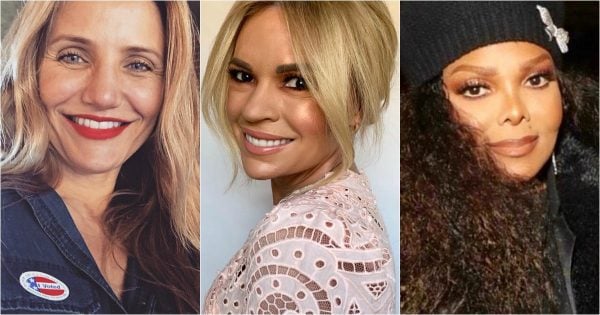
When actress Cameron Diaz, 47, announced the birth of her first child Raddix this month, the first question was about her age.
“She’s in her late 40s though”, asked the world’s armchair experts.
Everyone was shocked that a woman of her age could carry and deliver a healthy baby into this world.
While we’re on the topic…here’s some things pregnant people never say. Post continue after podcast.
Of course, we don’t actually know how Cameron and husband Benji Madden welcomed their tiny human into the world.
But they certainly aren’t the only ones whose baby news has been intertwined in recent years with comments about their age.
The same question was asked of TV host Sonia Kruger, who had daughter Maggie aged 49 in 2015, as well as singer Alanis Morrisette, who had her third aged 44 last year, and musician Janet Jackson who had a son aged 50 in 2017.

Top Comments
I'm so sick of the scare-mongering around older women having babies. My grandmother had children in her 40s. It was common back then because women waited for their husbands to come back from war. My great grandmother had a baby at 47. There was certainly no reproductive technology back then.
All the pressure is just another way for our patriarchal society to hold women back.
It's never been "common" to have children in one's forties. Discussing biological facts - including the fact that fertility in women decreases with age, with a commensurate risk of complications increasing - is not "scare-mongering". Exceptions to the rule always exist, as you have observed in your family, but you need to appreciate your N=2 anecdote is a statistical outlier and doesn't represent the more typical experience most women would face at that age.
It has nothing to do with a patriarchal society, but biological reality. Everyone has a story of how their mother/grandmother, or in your case, your great grandmother had a baby in their mid to late 40s and even back in the 1940s it was not common for women to have babies at that age.